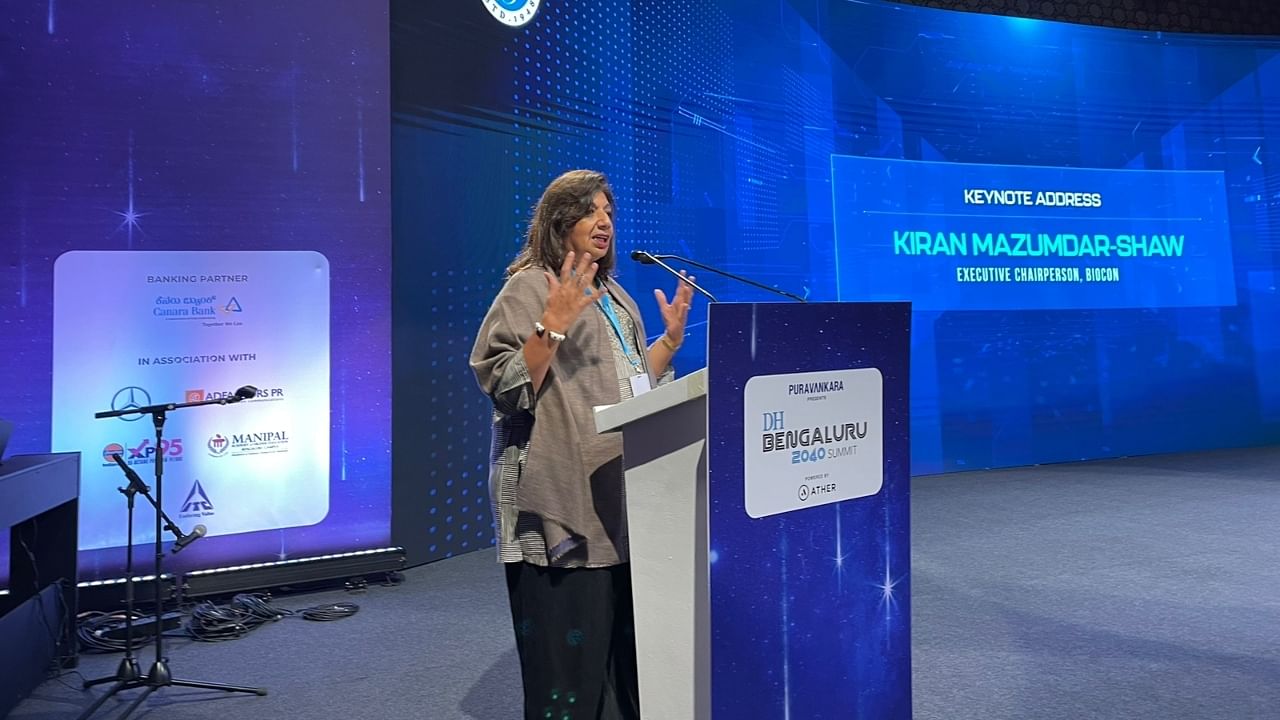
Bengaluru has the most important ingredient to turn into a future-ready city – a scientific temperament, pointed out Kiran Mazumdar-Shaw, Executive Chairperson, Biocon Ltd, the city-based global biopharmaceutical company.
Speaking at Deccan Herald’s Bengaluru 2040 Summit, on Saturday, she traced the history of the city’s tryst with science right from the founding of the Indian Institute of Science (IISc) back in 1909, to the evolution of NIMHANS, the National Aerospace Laboratory in 1960 and to its continued engagement with research and development to this day.
Also Read: GDP growth seen slowing to 7% in FY23
Starting with the entry of Texas Instruments in 1985, the city became the destination for research and development for many multinational countries and today it is home to over 400 ‘global in-house centres’ (GICs), the billionaire entrepreneur underscored.
She lauded the bold bet taken in the city of investing in science and technology, facilitating the scientific and creative temper to make Bengaluru the “IT, BT capital of the country”.
Laying out the “Blueprint for a future-ready Bengaluru,” she stressed that a future-ready city should be smart, sustainable, inclusive and resilient. To this end, she urged, “We need to reinvent Bengaluru and more importantly, citizens need to reinvent their thinking.”
Mazumdar-Shaw has been a vocal critic of Bengaluru’s haphazard development, holding government officials accountable on multiple occasions. From potholes to encroachments resulting in water logging amid heavy rains, the biotechnology industry veteran has been a regular participant in social media debates on the city’s crumbling infrastructure.
In the keynote address at the summit, the Padma Shri and Padma Bhushan recipient, cited smart sensors, real-time data analytics, artificial intelligence and green energy as the path to a future-ready city. “We (Bengaluru) have everything it takes to be this futuristic city,” she added.
Batting for inclusive growth she talked of how mobility should go beyond traffic issues to turn the city roads pedestrian safe and steer towards seamless mobility.
Beyond the fact that 45% of GICs are today located in Bengaluru, she highlighted the leading role the city has played in the start-up ecosystem, with 40 of the country’s unicorns based here. She also took inspiration from the different vision groups formed here to carve the road ahead and turn the city from a retiree’s paradise to a buzzing hub. “We have the potential of delivering a trillion-dollar economy just from Karnataka by 2040,” she cheered.